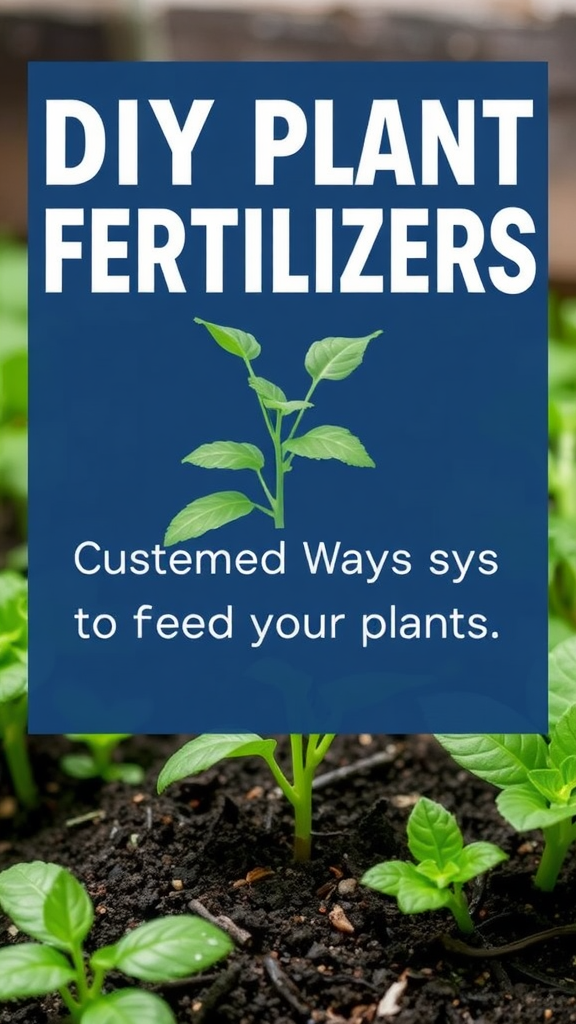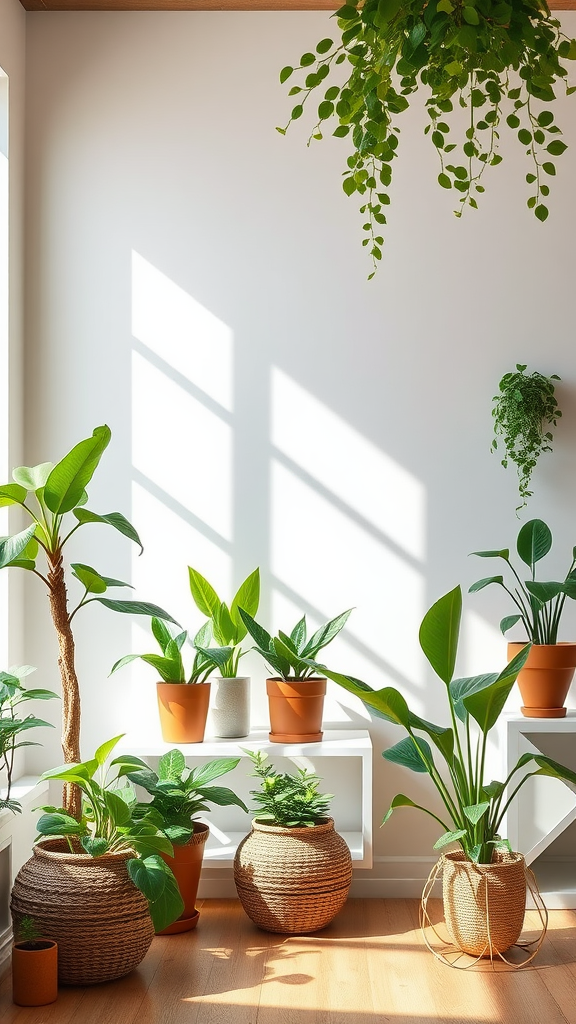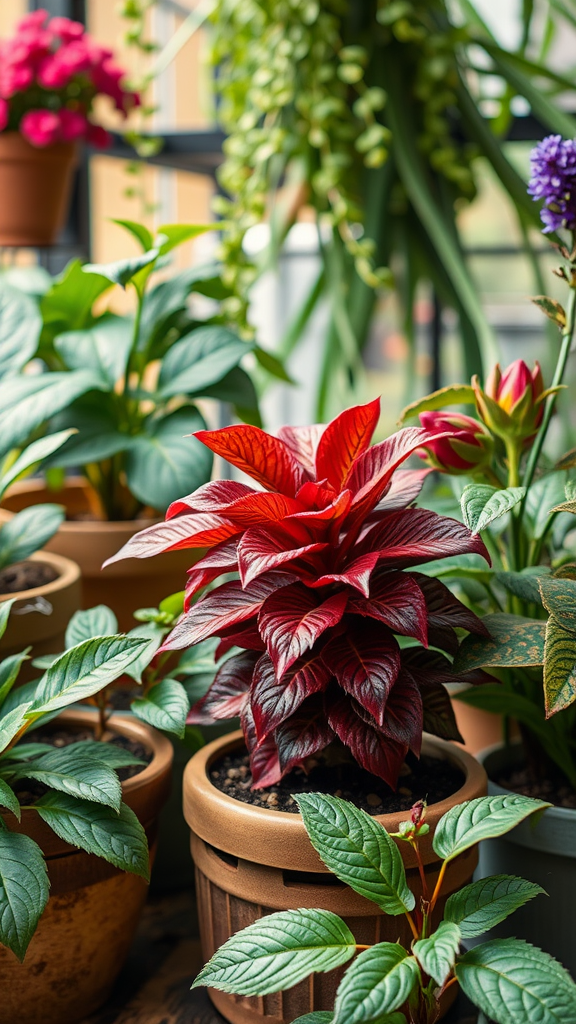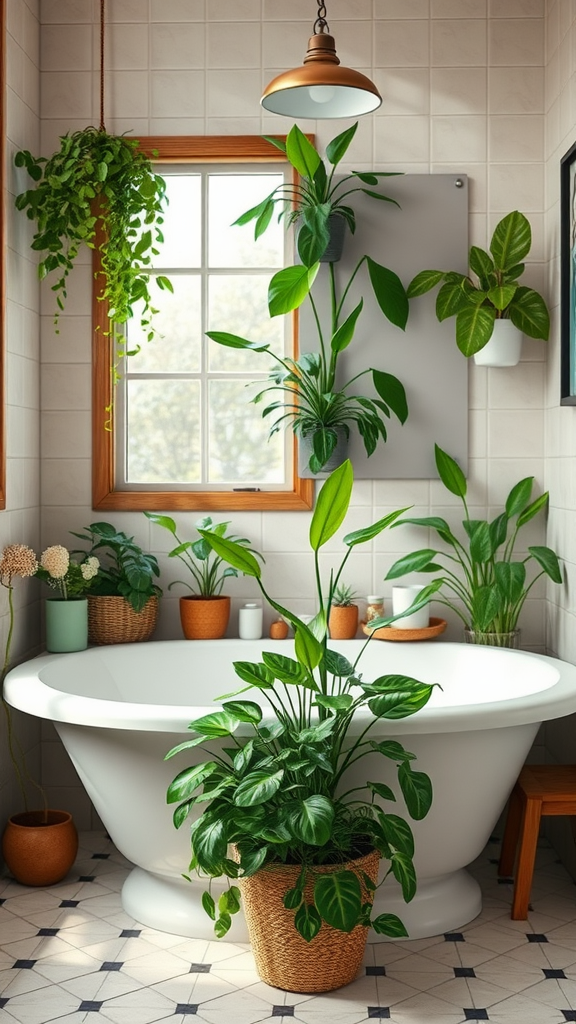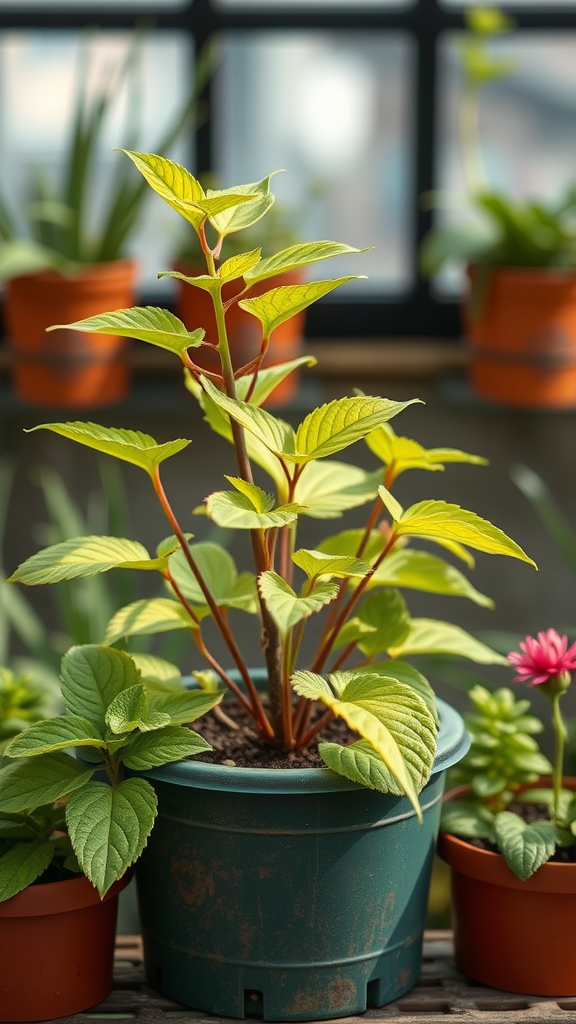DIY Plant Fertilizers: Crafting Natural Solutions to Nourish Your Greenery
Gardening is a joyful activity that can become even more fulfilling when you make your own fertilizers. DIY plant fertilizers offer a way to nourish your greenery naturally. Unlike store-bought options, these homemade solutions are not only eco-friendly but also economical. Let’s explore some fantastic and simple recipes to help your plants thrive.
Why Use DIY Plant Fertilizers?
Making your own fertilizers allows you to control what goes into your plants. Commercial fertilizers can contain harmful chemicals that might affect your garden’s health. On the other hand, natural solutions improve soil quality and enhance plant growth without risks. Here are some of the benefits of using DIY plant fertilizers:
- Cost-effective: You can create fertilizers using materials you have at home.
- Eco-friendly: Reduce your carbon footprint by avoiding packaged chemicals.
- Safe for all plants: Natural fertilizers are safer for vegetables, herbs, and flowers.
- Easy to make: Many homemade fertilizers require minimal effort and ingredients.
Common Ingredients for DIY Fertilizers
You might be surprised by how many household items can serve as nourishment for your plants. Here are some that you likely have on hand:
- Banana Peels: Rich in potassium, banana peels help in blooming.
- Coffee Grounds: These grounds add nitrogen to the soil and improve plant structure.
- Egg Shells: Crushed egg shells provide calcium vital for strong cell walls.
- Used Tea Bags: Loaded with nutrients, used tea bags can enrich your compost pile.
- Water from Boiled Vegetables: The nutrient-rich water can revive thirsty soil.
How to Make Your Own DIY Plant Fertilizers
1. Banana Peel Fertilizer
Using banana peels is a straightforward method. Simply take your leftover peels and chop them into smaller pieces. Bury these pieces about an inch deep in the soil around your plants. As they decompose, they release potassium and phosphorus, promoting growth.
2. Coffee Ground Fertilizer
After enjoying your morning cup, save those coffee grounds! Sprinkle used grounds around the base of your plants or mix them into your compost. This addition enriches the soil and helps retain moisture.
3. Egg Shell Fertilizer
Rinse your used egg shells to remove any residue, and let them dry. Once dried, crush the shells into small particles. These can be sprinkled around the plants to add calcium to the soil, which is essential for healthy growth.
4. Seaweed Fertilizer
If you live near the coast, consider using fresh seaweed. Rinse it to eliminate salt and chop it into smaller pieces. Mix the seaweed with water and let it steep for a few weeks. The resultant liquid can be diluted with water and used to feed your plants.
5. Vegetable Water Fertilizer
Next time you boil vegetables, save that water! It’s packed with nutrients. Allow it to cool down, then pour it directly onto your plants. This simple trick nourishes your greenery without adding chemicals.
When to Apply DIY Fertilizers
Knowing when to apply your homemade fertilizers is key to their effectiveness. A good rule of thumb is to enrich your soil:
- Every 4 to 6 weeks during the growing season.
- After transplanting new plants to help them settle.
- Before planting seeds to ensure they have necessary nutrients.
Observing Your Plants
As you start using DIY fertilizers, take note of how your plants respond. Healthy plants will display vibrant leaves, strong growth, and abundant blooms. Adjust your recipes based on your observations. Gardening is about learning and adapting, so enjoy the process!
By making your own natural fertilizers, you contribute to a healthier environment while cultivating beautiful plants. Start using these simple recipes today, and watch your garden flourish with life and color.
The Benefits of Using Organic Materials for Plant Growth and Soil Health
Using organic materials in gardening and farming has gained popularity due to its numerous benefits for plant growth and soil health. Organic materials are derived from living organisms and include compost, manure, and green waste. These materials not only enhance the soil quality but also promote healthier plant growth.
Enhancing Soil Structure
One of the primary advantages of incorporating organic materials is their ability to improve soil structure. Healthy soil has a good balance of sand, silt, clay, and organic matter. When you add organic materials, you help create a crumbly texture that allows air and water to penetrate the soil easily. This improved aeration is crucial for root development, helping your plants access nutrients and moisture effectively.
Boosting Nutrient Availability
Organic materials are rich in essential nutrients that plants need for growth. Unlike synthetic fertilizers, which often provide instant but temporary benefits, organic materials release nutrients slowly over time. This slow release ensures that plants receive a steady supply of nutrients. Key nutrients you can typically find in organic matter include:
- Nitrogen: Vital for leaf production and overall plant growth.
- Phosphorus: Encourages strong root development and flowering.
- Potassium: Helps improve fruit quality and overall hardiness.
Promoting Soil Microbial Activity
The health of your soil is directly related to the biological activity it supports. Organic materials serve as food for beneficial microorganisms such as bacteria, fungi, and earthworms. These organisms play a crucial role in breaking down organic matter, releasing nutrients in a form that plants can absorb. A thriving microbial community also helps suppress plant diseases, making your garden more resilient.
Retaining Soil Moisture
Another benefit of organic materials is their ability to retain moisture in the soil. They can hold water much better than inorganic materials. When you add compost or well-rotted manure to your soil, it acts like a sponge, capturing water during rainfall or irrigation and releasing it to plants gradually. This moisture retention is particularly beneficial in dry periods, reducing the need for frequent watering.
Reducing Soil Erosion
Soil erosion is a significant concern for gardeners and farmers alike. The application of organic materials helps bind soil particles together, creating a stable structure that resists erosion. When you maintain healthy organic matter levels, you protect your soil from heavy rain and wind that can wash or blow it away. Keeping your soil intact means your plants have a consistent reservoir of nutrients and moisture to thrive.
Improving pH Levels
Many plants thrive best in specific pH levels. Organic materials can help to buffer soil pH, making it less acidic or alkaline as needed. For instance, adding lime allows for an increase in pH, while materials like sulfur can help make soil more acidic. By adjusting the pH naturally with these amendments, you can create an optimal growing environment for your plants.
Encouraging Sustainable Practices
Using organic materials encourages eco-friendly gardening and farming practices. By recycling kitchen scraps, yard waste, and animal manures, you minimize the waste that ends up in landfills. Employing organic fertilizers also means less dependency on chemical inputs that can harm the environment and disrupt ecosystems. This practice supports a healthier planet while still meeting your gardening needs.
Cost-Effectiveness
Using organic materials can also be economical. While there might be an initial investment, many organic materials can be sourced for free or made at home, such as compost or vermicompost. Over time, this approach can reduce the need for purchased fertilizers, resulting in savings for gardeners and farmers.
Incorporating organic materials into your gardening and farming can lead to healthier plants and better soil health. From enhancing soil structure and nutrient availability to supporting beneficial microorganisms and reducing erosion, these natural amendments provide a myriad of benefits that contribute to sustainable plant growth and overall ecosystem health. By adopting these practices, you are not just nurturing your plants but also taking steps toward a more sustainable and responsible approach to gardening.
Conclusion
Creating your own DIY plant fertilizers not only enriches your plants but also fosters a deeper connection with nature. By using organic materials like kitchen scraps, coffee grounds, banana peels, and eggshells, you tap into the richness of the natural world, providing your plants with essential nutrients. These homemade fertilizers not only support plant growth but also improve soil health, promoting a more sustainable gardening practice.
Opting for natural fertilizers encourages a healthier ecosystem in your garden. They enrich the soil, attracting beneficial microorganisms that are crucial for nutrient absorption. This leads to stronger, more resilient plants that can better withstand pests and diseases. You also help reduce waste by recycling household items, minimizing your environmental impact and contributing to a more sustainable lifestyle.
Furthermore, by understanding what goes into your DIY plant fertilizers, you can tailor your approach to meet the specific needs of your plants. Experiment with different combinations to discover what works best for the unique conditions of your garden. Whether you’re growing vibrant flowers, delicious veggies, or lush houseplants, natural fertilizers provide a cost-effective and eco-friendly way to nourish your greenery.
Ultimately, embracing DIY plant fertilizers allows you to become an active participant in the growth of your plants. You’ll not only see your garden thrive but also enjoy the many benefits of using organic materials—both for your plants and the planet. So gather your ingredients, roll up your sleeves, and start crafting your own natural fertilizers today for a greener, healthier garden.

